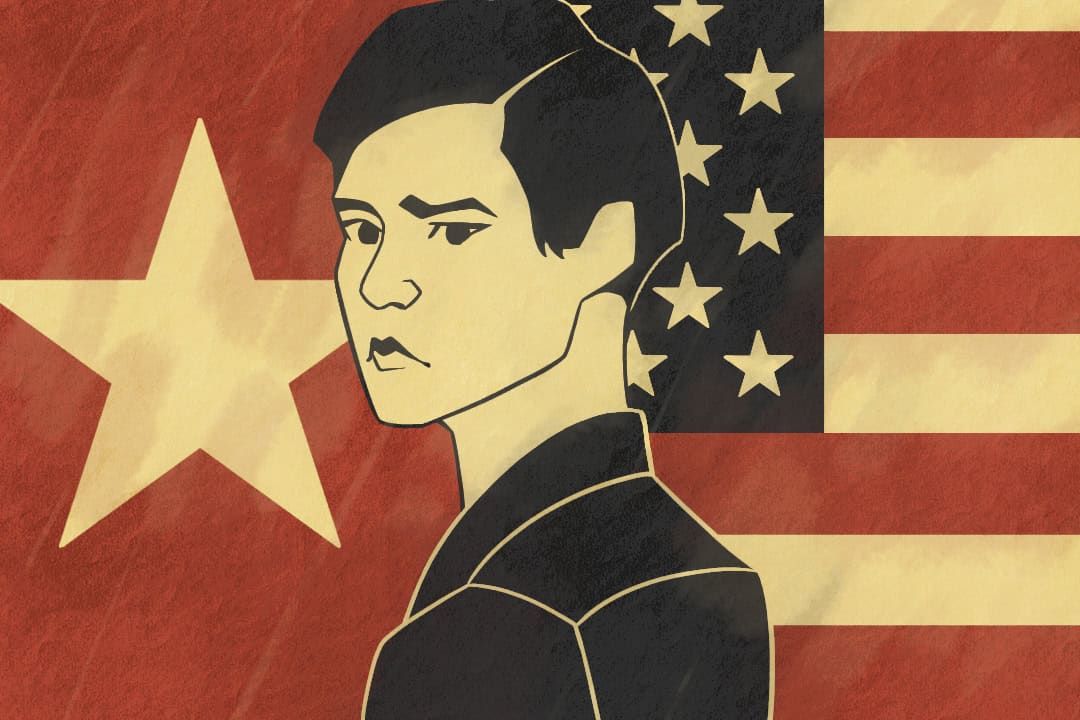Viet Thanh Nguyen’s Pulitzer Prize-winning novel The Sympathizer (2015) could not have found better hands for its TV adaptation.
Oldboy (2003) director Park Chan-wook tells the story of a North Vietnamese spy, a communist sympathizer in the South Vietnamese military force, immediately after the communist North Vietnam’s victory in the Vietnam War. The Viet Cong — a South Vietnamese guerilla army backed by North Vietnam’s forces — orders the unnamed half-Vietnamese, half-French secret police captain sympathizer (Hoa Xuande) to stay undercover after the fall of Saigon. He is ordered to follow the South Vietnam general and other dissidents against America to report on their counterrevolutionary activities.
For readers of Nguyen’s novel, the show’s plot somewhat diverges from its source material, offering a fresh take on a few pieces of the story.
An audacious decision is casting Robert Downey Jr. as multiple characters: the captain’s CIA handler and mentor Claude; his old professor of “Oriental Studies” at the University of California, Los Angeles; an ex-green beret congressman; and an overbearing Hollywood filmmaker. Each of these old white men is clothed ostentatiously and distinctly. The show makes it obvious that the characters are all the same actor and Downey Jr. puts on a wonderfully eccentric performance for each of them.
I read this as an ironic take on the stereotype that all non-white people look the same to a white person — or the cross-race effect — as the police captain seems to be unable to distinguish between Downey Jr.’s various shades of white. I also see it as a comment on the interconnectivity of all the sources of white chauvinism: they all wear the same face.
The show mostly shines in its cinematography and editing as Park combines unconventional but enrapturing shots with a brisk pace that makes each scene exhilarating to watch unfold. Even in scenes where characters are only speaking, the cameras conjure exciting motion, drawing the viewer’s eye to areas of interest.
In one scene, the 180-degree rule is outright broken to convey the conversation’s intensity. For the surreptitious Claude, the camera reels the viewer into a sense of comfort before he abruptly comes into frame, surprising both the captain and the viewer. A dutch angle — which is a diagonally tilting camera shot — as the secret police turn the corner of the stairwell, and a piece of polemic vandalism stares you in the eye.
None of this feels at all contrived or unnatural. Park and his co-directors — Fernando Meirelles and Marc Munden — simply have a brilliant eye for beautiful and powerful shots and sequences.
Despite the show’s fresh take on the novel, its plot divergence creates a cinematic hastiness that ends up overlooking some of the novel’s nuances. In the novel, the ex-South Vietnamese secret police officers slump into a lethargic slumber in their months of idleness as disguised refugees in America. Their once mighty prestige and power become useless in their new home. For the homesick émigrés — people who emigrate for political reasons — who share almost nothing with the culture and peoples of their host, their ejection from their homeland feels like an exile to purgatory. This makes their rejuvenation at even the slimmest hope of resistance more compelling.
The show does not convey any of this effectively. Instead, it takes at face value the officers’ claim of taking a temporary retreat before returning to the glorious fight. The novel’s captain has sympathy and pity towards the refugees, which adds depth to his moral calculations and his keen eye for reading people. The show’s captain barely pays attention.
I found that the characterization of the captain is where the show mostly fails. Nguyen’s captain in the novel is charming and witty on the surface, but only to a degree where he seems harmless and agreeable. Inside, he is a contemplative thinker who struggles with great personal demons. It is in his head where we find poignant commentary about race and politics, allowing readers to understand him as a complex and thoughtful individual while he fulfills his role as a mole. This also adds a delightful irony when he comes up with witty remarks that he cannot vocalize.
Of course, Xuande’s splendid poker face and good physical acting alone cannot fully translate an internal monologue to the viewer, and a voiceover needs to be sparingly used in further expressing this. The Sympathizer applies a few creative tricks here to render the thoughts of Xuande’s captain, such as him saying something impertinent before revealing he only wished for it.
Unfortunately, the show does not fully capture the depth of Xuande’s character. It sometimes feels like he just wanders into random situations and quips about racism.
Park’s film is worth watching for the cinematography alone. While it does not fully succeed at adapting some of the depth of its source material, it is an excellent show on its own. My personal recommendation is to read the novel and watch the show, as both pieces support each other and, together, make a spellbinding espionage tale and an effective blend of politics, prose, and style.



No comments to display.